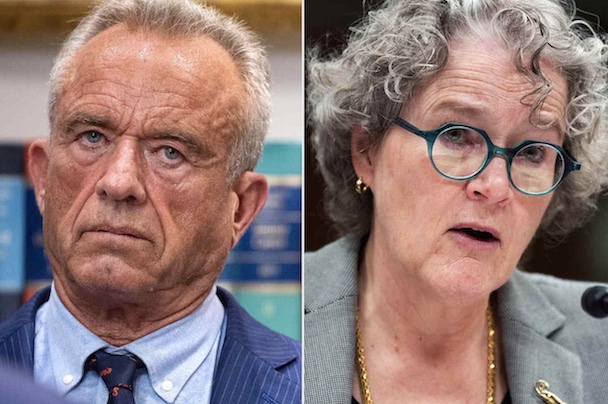Jeanne Marrazzo, the former director of the National Institute of Allergy and Infectious Diseases (NIAID), was fired by Health and Human Services Secretary Robert F. Kennedy Jr., an action that quickly followed her filing of a whistleblower complaint. Marrazzo asserted in her complaint that her removal was a direct act of retaliation, calling out “the HHS’s illegal cancellation of several critical research grants, politicization of scientific research, baseless hostility towards vaccinations, and censorship of scientific research.”
“The Trump Administration terminated Dr. Marrazzo for her advocacy on behalf of critical health research and for her support of the overwhelming body of evidence that shows vaccines are safe and effective,” said Debra S. Katz, Marrazzo’s attorney. “With her firing, there is no doubt she was removed from her position as director of NIAID in retaliation for her protected whistleblower activity.”
Timeline of Events
- Marrazzo, a distinguished infectious disease expert who succeeded Dr. Anthony Fauci in August 2023, was initially demoted from her role in March 2025 and placed on administrative leave.
- On September 4, 2025, she submitted an official whistleblower complaint to the Office of Special Counsel, accusing the HHS of illegally cancelling research grants, politicizing scientific decisions, displaying hostility towards vaccinations, and censoring science.
- Just twenty-two days after the complaint, Kennedy delivered a termination letter, providing no public explanation.
Marrazzo Ally of Dr. Fauci
Dr. Marrazzo has often been perceived as an ally of Dr. Anthony Fauci in the realm of infectious disease research and public health policy, especially during the COVID-19 pandemic and her subsequent leadership at the National Institute of Allergy and Infectious Diseases (NIAID). This reputation developed largely because Marrazzo has supported initiatives similar to those championed by Fauci, particularly regarding HIV/AIDS research, vaccine promotion, and evidence-based responses to public health emergencies. Her appointment as Fauci’s direct successor, following his 38-year tenure, which ended in December 2022, reinforced this perception within the scientific and public health communities.
A crucial backdrop to Dr. Marrazzo’s positions is the decision by HHS to halt federal support for mRNA vaccine technology development, with significant involvement from NIAID and NIH scientists in reviewing and ultimately terminating these contracts. Dr. Matthew Memoli, who was serving as the acting NIH director at the time, played a pivotal role in both ending grants related to vaccine hesitancy research and initiating a broader review of mRNA funding.
In March 2025, under Memoli’s leadership, the NIH abruptly canceled at least 33 research grants focused on understanding vaccine hesitancy and developing strategies to improve uptake, while an additional nine grants faced possible reduction or modification. The official termination notices stated, “This research is no longer aligned with NIH priorities, and no modification of the project could align it with the new policy.”



